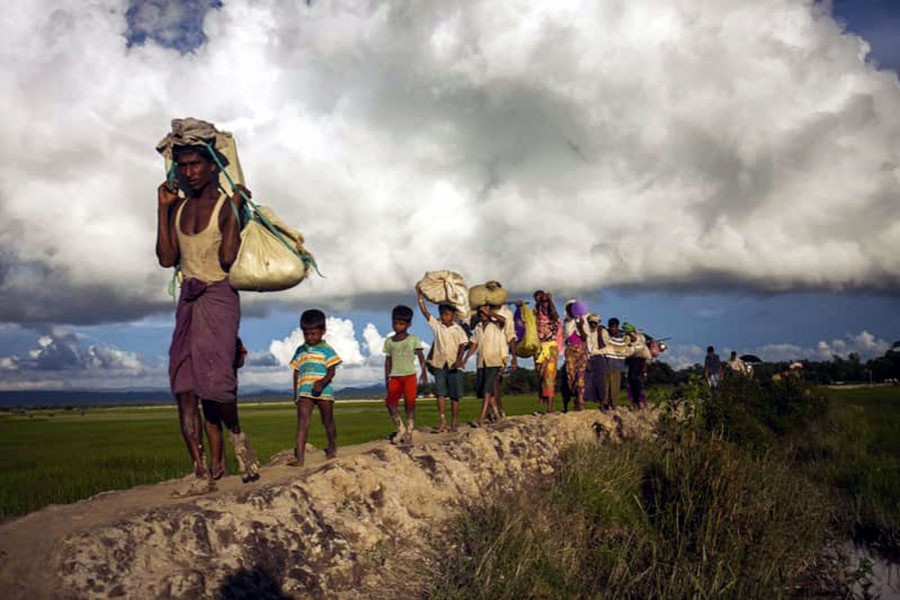The Rohingya people, who have crossed into Bangladesh from Myanmar since August 25, have outnumbered the local people in Ukhia and Teknaf upazilas of Cox’s Bazar district.
According to the population census 2011, the total population of Teknaf upazila is 264,389, while that of Ukhia upazila is 207, 379.
The estimated Rohingya population now stands at over one million in the said upazilas, which is increasing every day, a news agency reports.
Noor Alam, a local resident of Balukhali in Ukhia, expressed his deep concern over the increasing number of Rohingya people.
Talking to a news agency, a local businessman, Noor, said, “We’re afraid of the worst situation. We cannot comfortably lead our daily life for the huge movement of the Rohingya population. We never experienced such an influx in the area in the past.”
“We cannot enter our local markets due to overcrowding by Rohingyas. Besides, I’ve lost some of my ancestral land property due to the makeshift camp made for the Rohingyas,” he said.
Sirajul Mostofa, president of Cox’s Bazar district unit Awami League, said, “Rohingya population now stands at 1.1 million while the total population of Teknaf and Ukhia is only 600,000. It’s almost double the local people.”
Noting that the Rohingya influx has become a serious problem for Cox’s Bazar and the whole Bangladesh, he demanded the government take necessary steps to restrict their movement and relocate them to Bhashanchar as soon as possible.
Saikat Biswas, a representative of International Organisation for Migration (IOM), said, “The international donor community has committed more than US$344 million to meet the needs of the most vulnerable Rohingyas.”
He said the money will also be spent on building roads, schools, madrasas and other infrastructures around the Rohingya camps.
Six UN agencies -- UN High Commissioner for Refugees (UNHCR), IOM, United Nations Children Fund (Unicef), United Nations Population Fund (UNFPA), United Nations Food and Agriculture Organisation (FAO) and World Health Organisation (WHO) -- are directly involved in the relief operations here.
Of the organisations, UNHCR has been working here since 1992 while IOM and Unicef since 2013 and 2015 respectively.
More than one million Rohingya people, mostly women, children and elderly people, have fled persecution in their home state Rakhine, Myanmar since August 25 last and crossed over to Cox’s Bazar seeking safe shelter.


